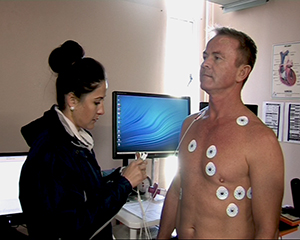Latest News Archive
Please select Category, Year, and then Month to display items
04 April 2024
|
Story Lunga Luthuli
|
Photo SUPPLIED
 Dr Juliet Kamwendo champions gender-inclusive climate action in Africa. Her expertise at the recently held AFR100 workshop highlighted vital steps towards sustainable and equitable development.
Dr Juliet Kamwendo champions gender-inclusive climate action in Africa. Her expertise at the recently held AFR100 workshop highlighted vital steps towards sustainable and equitable development.
Dr Juliet Kamwendo, Lecturer and Programme Director for Gender Studies in the Centre for Gender and Africa Studies at the University of the Free State, is spearheading efforts to integrate gender considerations into Africa's climate restoration agenda. Reflecting on her involvement, Dr Kamwendo stated, "This is particularly crucial, as women make up almost 50% of the population in Africa, and the depletion and degradation of land affect them disproportionately."
She recently served as a gender expert at the AUDA-NEPAD AFR100 workshop in Ouagadougou, Burkina Faso, from 25 to 29 March 2024. This initiative aims to restore forests and degraded land across Africa by 2030, with a focus on gender equality.
The workshop emphasised the integration of gender perspectives into the AFR100 project, acknowledging the disproportionate impact of land degradation on women. Dr Kamwendo's expertise highlighted the need to empower women in climate change interventions, addressing existing gender inequalities exacerbated by environmental degradation.
“Women – who are primarily responsible for household food security and water provision – bear the brunt of environmental degradation, leading to increased workloads, reduced income opportunities, and heightened vulnerability to climate-related disasters. Furthermore, the loss of forest cover and biodiversity further exacerbates the challenges faced by women, particularly in rural areas where they depend heavily on natural resources for their livelihoods,” added Dr Kamwendo.
Her participation highlights academia's crucial role in fostering inclusive and sustainable development, emphasising interdisciplinary collaboration to tackle complex environmental challenges. Through initiatives such as AFR100, stakeholders are working towards a more resilient and gender-responsive future for Africa.
Department of Exercise and Sport Sciences introduces a new undergraduate programme in Biokinetics
2016-06-10

The Department of Exercise and Sport Sciences
launched the B Biokenetics programme,
which will be offered at the UFS from 2017.
Photo: Supplied
Bio + Kinetics = Life + Movement = life through movement
The Department of Exercise and Sport Sciences, now within the Faculty of Health Sciences School of Allied Health Professions, launched their new undergraduate programme in Biokinetics. The Bachelor of Biokinetics programme will be presented in its new format at the University of the Free State’s Bloemfontein Campus from 2017.
Biokinetics is the Science of Movement and the application of exercise in the rehabilitative treatment of performance, while its primary function is to improve physical functioning and health care through exercise as modality. The profession is concerned with health promotion, the maintenance of physical abilities, and final-phase rehabilitation by means of scientifically-based physical activity programme prescription.
The department has an exceptional multi-disciplinary team of lecturers and support staff with years of experience in Biokinetics, Sport Science, Kinderkinetics, as well as Sport and Recreation Management.
Admission to the programme is subject to selection and is based on academic potential and the extent and level of activity, in addition to that prescribed by academic curricula.
The closing date for applications is 30 August 2016.
For full details regarding selection criteria and applications, visit the Faculty of Health Sciences Facebook page or visit the faculty webpage.